#recycling waste
Explore tagged Tumblr posts
Link
48 notes
·
View notes
Text
Discover how to balance brand promotion with environmental responsibility when buying printed paper cups in bulk. Explore eco-friendly materials, customization options, and the future of disposable cups.
#printed paper cups#benefits of recycling#recycling waste#paper disposal#recycled paper product#paper cups biodegradable
1 note
·
View note
Text
It’s an open secret in fashion. Unsold inventory goes to the incinerator; excess handbags are slashed so they can’t be resold; perfectly usable products are sent to the landfill to avoid discounts and flash sales. The European Union wants to put an end to these unsustainable practices. On Monday, [December 4, 2023], it banned the destruction of unsold textiles and footwear.
“It is time to end the model of ‘take, make, dispose’ that is so harmful to our planet, our health and our economy,” MEP Alessandra Moretti said in a statement. “Banning the destruction of unsold textiles and footwear will contribute to a shift in the way fast fashion manufacturers produce their goods.”
This comes as part of a broader push to tighten sustainable fashion legislation, with new policies around ecodesign, greenwashing and textile waste phasing in over the next few years. The ban on destroying unsold goods will be among the longer lead times: large businesses have two years to comply, and SMEs have been granted up to six years. It’s not yet clear on whether the ban applies to companies headquartered in the EU, or any that operate there, as well as how this ban might impact regions outside of Europe.
For many, this is a welcome decision that indirectly tackles the controversial topics of overproduction and degrowth. Policymakers may not be directly telling brands to produce less, or placing limits on how many units they can make each year, but they are penalising those overproducing, which is a step in the right direction, says Eco-Age sustainability consultant Philippa Grogan. “This has been a dirty secret of the fashion industry for so long. The ban won’t end overproduction on its own, but hopefully it will compel brands to be better organised, more responsible and less greedy.”
Clarifications to come
There are some kinks to iron out, says Scott Lipinski, CEO of Fashion Council Germany and the European Fashion Alliance (EFA). The EFA is calling on the EU to clarify what it means by both “unsold goods” and “destruction”. Unsold goods, to the EFA, mean they are fit for consumption or sale (excluding counterfeits, samples or prototypes)...
The question of what happens to these unsold goods if they are not destroyed is yet to be answered. “Will they be shipped around the world? Will they be reused as deadstock or shredded and downcycled? Will outlet stores have an abundance of stock to sell?” asks Grogan.
Large companies will also have to disclose how many unsold consumer products they discard each year and why, a rule the EU is hoping will curb overproduction and destruction...
Could this shift supply chains?
For Dio Kurazawa, founder of sustainable fashion consultancy The Bear Scouts, this is an opportunity for brands to increase supply chain agility and wean themselves off the wholesale model so many rely on. “This is the time to get behind innovations like pre-order and on-demand manufacturing,” he says. “It’s a chance for brands to play with AI to understand the future of forecasting. Technology can help brands be more intentional with what they make, so they have less unsold goods in the first place.”
Grogan is equally optimistic about what this could mean for sustainable fashion in general. “It’s great to see that this is more ambitious than the EU’s original proposal and that it specifically calls out textiles. It demonstrates a willingness from policymakers to create a more robust system,” she says. “Banning the destruction of unsold goods might make brands rethink their production models and possibly better forecast their collections.”
One of the outstanding questions is over enforcement. Time and again, brands have used the lack of supply chain transparency in fashion as an excuse for bad behaviour. Part of the challenge with the EU’s new ban will be proving that brands are destroying unsold goods, not to mention how they’re doing it and to what extent, says Kurazawa. “Someone obviously knows what is happening and where, but will the EU?”"
-via British Vogue, December 7, 2023
#fashion#slow fashion#style#european union#eu#eu news#eu politics#sustainability#upcycle#reuse#reduce reuse recycle#ecofriendly#fashion brands#fashion trends#waste#sustainable fashion#sustainable living#eco friendly#good news#hope
10K notes
·
View notes
Text
youtube
Titans of Tomorrow - 2 | Teen Titans Go | Learn Recycling | Cartoon Network India
Beast boy’s room seems in a dire need of a hygiene check. Watch as the Titans of Tomorrow give us a lesson on cleanliness and hygiene on #TeenTitansGo only on #CartoonNetwork Do not miss any update on your favourite #cartoons by Subscribing to the Cartoon Network India YouTube Channel, Facebook page & Instagram page YouTube - https://www.youtube.com/@cnindia Facebook - https://www.facebook.com/CartoonNetwork.India Instagram - https://www.instagram.com/cartoonnetworkindia/ #cartoonnetworkindia #titans #robin #starfire #raven #beastboy #cartooncartoons #cartoonvideos #comingtoyourschool #school #TitansOfTomorrow
#cartoonnetwork#cartoon network india#cn india#cartoon heroes#teentitansgo#teen titans go#Titans of Tomorrow#Coming to Your School#Learn Recycling#recycling#recycling waste#nature#earth#environment#save energy#planet saviours#teentitansgo raven#cartoon network#cartoon network cartoons#cartoons#cartoon cartoons#cartoon videos#cartoon characters#school#sharing#helping#kindness#sharing is caring#good habits#best habits
0 notes
Text
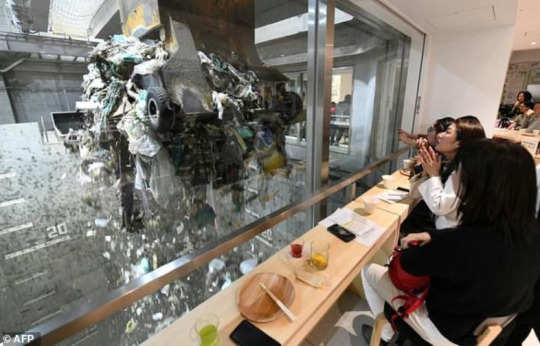
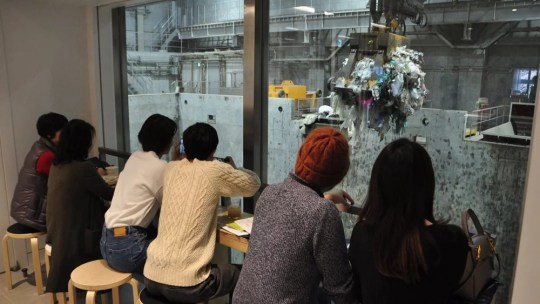
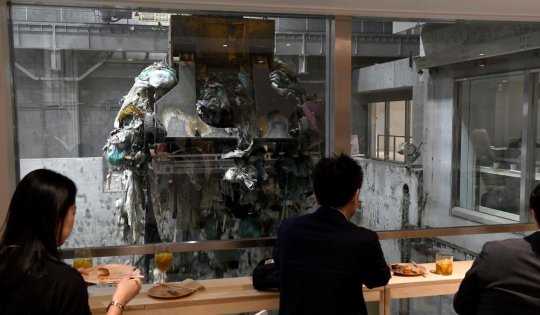
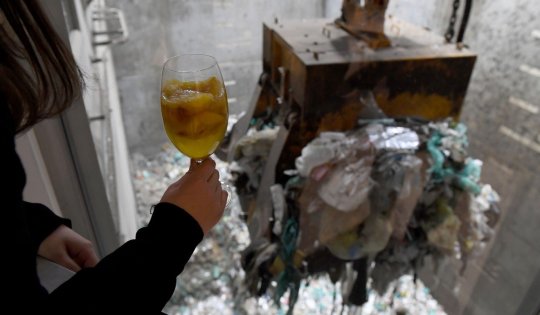
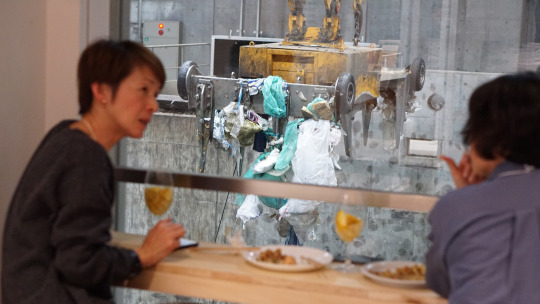

Gomi Pit
2K notes
·
View notes
Text
The impact of waste management on soil and water quality
The impact of waste management on soil and water quality

I. Introduction: Waste management is the process of collecting, transporting, processing, recycling, or disposing of waste materials. It is a critical aspect of maintaining a clean and healthy environment. One of the primary concerns of waste management is its impact on soil and water quality.
II. Effects of improper waste management on soil: Improper waste management can have a significant impact on the quality of soil. When hazardous materials are not disposed of properly, they can contaminate the soil, making it unsafe for plants, animals, and even human beings. Additionally, the accumulation of waste can lead to a loss of soil fertility and productivity, making it difficult for plants to grow. Furthermore, when organic waste is not disposed of properly, it can attract disease-causing microorganisms, which can lead to health hazards.
III. Effects of improper waste management on water quality: Improper waste management also has a detrimental impact on water quality. Polluted surface and ground water can be harmful to aquatic life and can make it unsafe for human consumption. The accumulation of waste in lakes and streams can also lead to a process called eutrophication, which is when a body of water becomes overly enriched with nutrients. This can cause an overgrowth of algae and other aquatic plants, which can lead to a decrease in oxygen levels and the death of fish and other aquatic life.
IV. Best practices for waste management: To minimize the impact of waste management on soil and water quality, it is important to implement best practices such as recycling and composting. These practices can significantly reduce the amount of waste that ends up in landfills. Additionally, proper disposal of hazardous materials is crucial to prevent contamination of soil and water. Furthermore, the use of waste-to-energy technologies can convert waste into usable energy, reducing the amount of waste that needs to be disposed of.
V. Conclusion: Proper waste management is essential for maintaining the health of our soils and water. Improper waste management can lead to contamination of soil and water, making it unsafe for plants, animals, and even human beings. To minimize the impact of waste management on soil and water quality, we must continue to implement best practices such as recycling and composting, proper disposal of hazardous materials, and the use of waste-to-energy technologies.
🔔 please like share and subscribe my channel ‼️
🌈 Connect with me on social 🎉 ►► E-mail : [email protected] ►► WordPress : https:/www.grocery-x.com/ ►► Medium : https://grocery-x.medium.com/ ►► Quora : https://www.quora.com/profile/Grocery-Shop-3 ►► Blogger : https://grocery-x.blogspot.com/ ►► Tumblr : https://www.tumblr.com/grocery-x ►► YouTube : https://www.youtube.com/@grocery-X
🎦 Watch related playlists🌐 WELCOME TO MY GROCERY — X LEARN ENGLISH PODCAST ►► https://youtu.be/NMOdbzaMhKA ►► https://youtu.be/v_yR1VAm8eU ►► https://youtu.be/Hd7ZMEcZiZo ►► https://youtu.be/dRhUDK35eDo ►► https://youtu.be/h9J4J08CA5k ►► https://youtu.be/YKtdTLDfNno ►► https://youtu.be/eUqWSUl42OI ►► https://youtu.be/mK5OqnD4GNk ►► https://youtu.be/QZfejKWKlVU
❤️ AFFILIATE LINKS 💖 ►► link1 : https://www.digistore24.com/redir/449013/Grocery-X/ ►► link2 : https://www.digistore24.com/redir/449013/Grocery-X/ ►► link3 : https://www.digistore24.com/redir/449013/Grocery-X/ ►► link4 : https://www.digistore24.com/redir/449013/Grocery-X/ ►► link5 : https://www.digistore24.com/redir/449013/Grocery-X/ ►► link6 : https://originality.ai?lmref=C7F8gA ►► link7 : https://pictory.ai?ref=grocery56 ►► link7 : https://murf.ai/?lmref=7x4Peg
#Waste Management Services#Waste Management Company#Waste Management System#Recycling#Recycling Waste
0 notes
Text

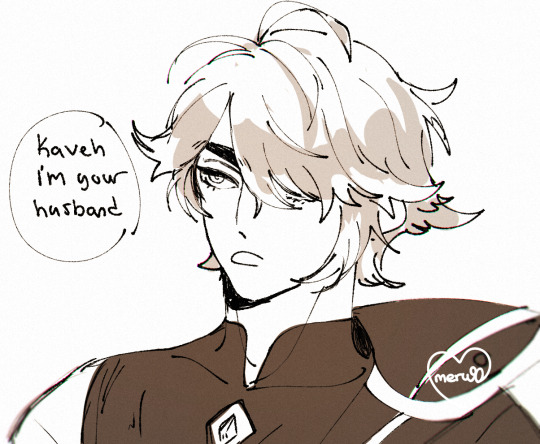
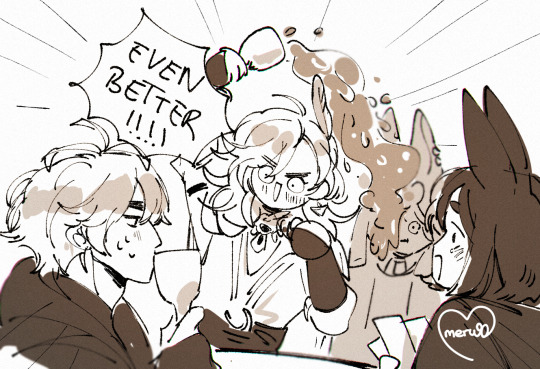
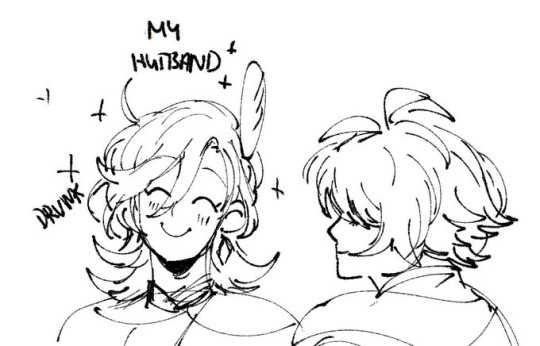
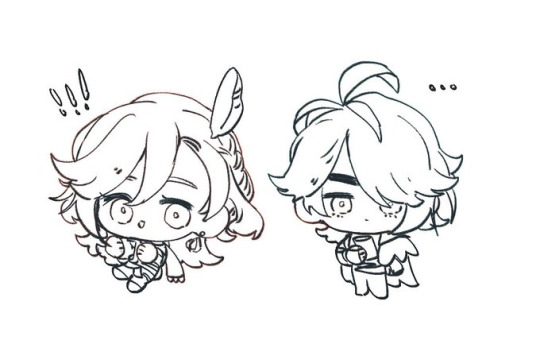

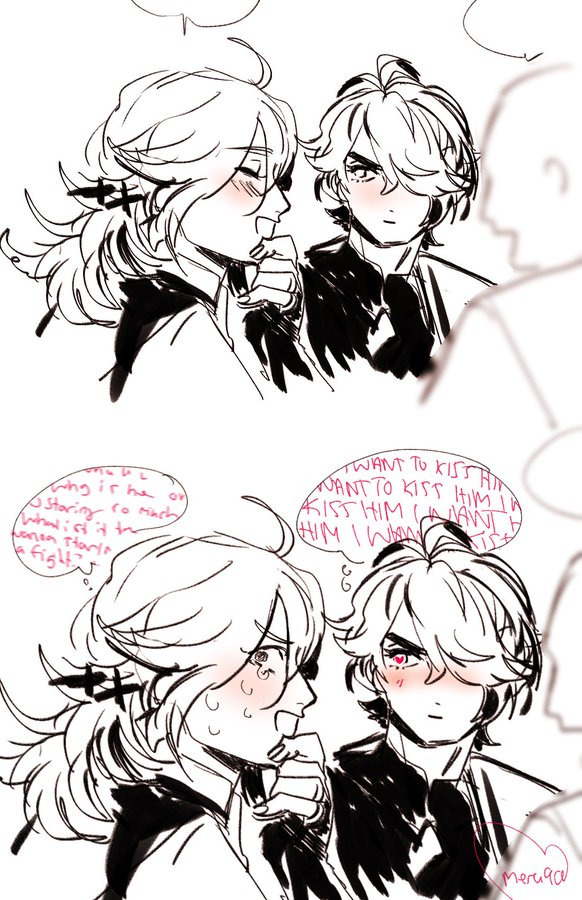

haikaveh twitter dump ÖwÖ HUSBAND HUSBAND HUSBAND HUSBAND
#fanart#genshin impact#kaveh#kaveh genshin#al haitham#al haitham genshin#doodle#haikavetham#the first one is an old thing i drew something from demon slayer but we wont be wasting here#recycling#lmaoooo
2K notes
·
View notes
Text
Plastic producers have known for more than 30 years that recycling is not an economically or technically feasible plastic waste management solution. That has not stopped them from promoting it, according to a new report. “The companies lied,” said Richard Wiles, president of fossil-fuel accountability advocacy group the Center for Climate Integrity (CCI), which published the report. “It’s time to hold them accountable for the damage they’ve caused.” Plastic, which is made from oil and gas, is notoriously difficult to recycle. Doing so requires meticulous sorting, since most of the thousands of chemically distinct varieties of plastic cannot be recycled together. That renders an already pricey process even more expensive. Another challenge: the material degrades each time it is reused, meaning it can generally only be reused once or twice. The industry has known for decades about these existential challenges, but obscured that information in its marketing campaigns, the report shows. The research draws on previous investigations as well as newly revealed internal documents illustrating the extent of this decades-long campaign. Industry insiders over the past several decades have variously referred to plastic recycling as “uneconomical”, said it “cannot be considered a permanent solid waste solution”, and said it “cannot go on indefinitely”, the revelations show. The authors say the evidence demonstrates that oil and petrochemical companies, as well as their trade associations, may have broken laws designed to protect the public from misleading marketing and pollution.
1K notes
·
View notes
Text
Patchwork makeup bags





Made patchwork makeup bags out of secondhand and recycled materials to ask my BFFs to be my bridesmaids using this tutorial
#diy#upcycle#upcycled#upcycling#crafts#handmade#ecofriendly#reduce reuse recycle#quilts#quilting#quiltblr#quilt#quilters of tumblr#patchwork#sewing#makeup#makeup bag#wastelesscrafts#wasteless crafts#zero waste#zerowaste#cozytumblr#cozycore#cozy aesthetic#cozy vibes#cozy#secondhand#thrifting#thrifstorefinds#secondhand crafts
390 notes
·
View notes
Text
Ok genuine and mildly upsetting question, for at least some of the surgeries large portions of the subjects' bodies are being removed and replaced (pretties get new teeth and their fat sucked out, iirc specials get entirely new muscles and bones) and the cities are very eco-conscious with a goal of recycling and not leaving much of a footprint on the planet so...... what are they doing with all that
#are they dumping it in the recycler. composting it#they are producing SO MANY teeth as a waste product#uglies
128 notes
·
View notes
Text
#california#good news#environmentalism#science#recycling#fast fashion#usa#waste reduction#clothing#fashion#environment
63 notes
·
View notes
Text
A list of (realistic) things you can do to be more environmentally friendly
(from an earth-loving horticulture student.)
— COSMETICS
Use bar soap instead of soap bottles
Use old toothbrushes for cleaning surfaces
Try exploring and researching some homemade face/body/lip products
Use ice sleeves, sunglasses, and caps instead of sunscreen (Edit: I’ve seen people say that it is safer and even necessary to wear sunscreen at all times so try to use eco friendly sunscreen instead! In my country it’s pretty uncommon to wear sunscreen often as we usually wear ice sleeves which is why I did not know this oof)
Use coffee grinds or homemade tumeric masks instead of cosmetic products with exfoliator beads
Invest in a metal ear cleanser instead of cotton buds
Try placing more importance on skincare instead of contributing to exploitative beauty companies by buying makeup
Use cosmetic products that do not contain palm oil
— CLOTHING
Try as much as possible to rewear your outfits at least twice before washing them
Actually WEAR your clothes! I know some of y’all just wear them once for your Instagram post and let it rot in your closet forever. Stop doing that!
Thrift, stitch up holes in your clothes, and use second hand clothing instead of supporting fast fashion companies like SHEIN, H&M, Zara, etc.
Cut up your old clothing into yarn and do macramè with it
Cut patches of old clothing to turn into reusable cotton pads
Learn how to knit, crochet or stitch your clothes!
If you use tampons, try menstrual cups or discs instead. If you use pads, try reusable pads or period underwear. (Trust me, it works). Also, use reusable panty liners instead of disposable ones. They may seem expensive but you will end up saving a lot more in the long run
— GARDENING
Plant seeds/cuttings in your old bottles, jars, and containers
Propagate your plants and exchange cuttings with your friends instead of buying new plants
Make your own soil mixes instead of buying soil mixes
Better yet, don’t use soil for your indoor plants and try getting into hydroponics or semihydroponics instead. This saves so much water and doesn’t contribute to mining of soil
Fertilise plants with fruit peels, coffee grinds, and tea leaves. (DO NOT use chemical fertiliser on soil)
Plant more legume plants in your garden instead of using nitrogen fertilisers. (Look up the nitrogen cycle if you need an explanation on this)
Avoid pesticides unless really needed. Try sprinkling cinnamon powder on soil or spraying neem oil on plants and soil to keep away pests.
If you have a lawn, try looking into rain gardens and consider making one
Let the (non invasive) weeds in your lawn/garden grow! They are there for a reason!
Stop killing earthworms and millipedes in your garden. This also applies to snails native to your region. They are there for a reason.
Water used to wash fruits and rice can be used to water plants
— REDUCE, REUSE
Use the caps of jars as soap holders
Use recycled paper/notebooks
Wash and dry your glass/plastic items before throwing them in the recycling bin
Keep any plastic bags for future use
Use eco friendly or reusable dish sponges
Use reusable straws and cups
Invest in a fabric cup holder
Bring a water bottle with you wherever you go
Drink more water and less sugary drinks
Bring reusable bags for buying groceries instead of using plastic ones
Always keep a folded up tote/shopping bag with you in case you spontaneously decide to buy something
— ELECTRICITY
Set a timer on your air conditioning instead of letting it run throughout the night
Better yet, use a fan instead of an air conditioner
Open your windows! Aerate your home!
Allow natural light to enter your home during the daytime, so as to avoid turning on your lights
Switch to LED lightbulbs instead of regular lightbulbs
Turn off any switches in your house when they are not in use
Collect the water from your air conditioner/dehumidifier condenser and use that to water plants, clean surfaces, steam ironing, and flushing toilets. Do not drink it though!
— INTERNET
Delete your all of your unwanted emails
Delete your inactive social media accounts
Try not to post excessively on social media and stop scrolling excessively too. This not only reduces energy usage but also improves your mental health and productivity
Try to keep to one social media app instead of having so many
Reduce your internet usage
Save your eBooks on a thumbdrive instead of on cloud
Use Ecosia instead of Google
Stop being influenced by social media trends that only just contribute to consumerism
Download music instead of streaming
Reduce online shopping
— FOOD
Reduce intake of processed foods
Reduce intake of fish, beef, and dairy
Try eating vegan or vegetarian foods at least once or twice a week
Cook your own meals instead of eating out
Bring your own food containers when taking away food from stores
Beeswax wrap instead of cling wrap!
Buy loose-leaf tea or plastic free tea bags instead of regular tea bags
Eat more mushrooms, vegetables, and fruits and drink more water
Support local farmers
And finally, educate yourself more about ecology and the environment!
#environment#ecology#sustainability#ecofriendly#anti lawn#anti beauty culture#hell on earth#save the earth#recycling#fast fashion#plants#feminism#environmental activism#plantcore#ecopunk#solarpunk#horticulture#sustainable#slow fashion#zero waste#plastic free#conservation#climate change#global warming#soil science
2K notes
·
View notes
Text
"As the world grows “smarter” through the adoption of smartphones, smart fridges, and entire smart houses, the carbon cost of that technology grows, too.
In the last decade, electronic waste has become one of the fastest-growing waste streams in the world.
According to The World Counts, the globe generates about 50 million tons of e-waste every year. That’s the equivalent of 1,000 laptops being trashed every second.
After they’re shipped off to landfills and incinerated, the trash releases toxic chemicals including lead, cadmium, arsenic, mercury, and so much more, which can cause disastrous health effects on the populations that live near those trash sites.
Fortunately, Franziska Kerber — a university student at FH Joanneum in Graz, Austria — has dreamed up a solution that helps carve away at that behemoth problem: electronics made out of recyclable, dissolvable paper.
On September 11, Kerber’s invention “Pape” — or Paper Electronics — earned global recognition when it was named a national winner of the 2024 James Dyson Awards.

When she entered the scientific competition, Kerber demonstrated her invention with the creation of several small electronics made out of paper materials, including a fully-functional WiFi router and smoke detector.
“Small electronic devices are especially prone to ending up in household waste due to unclear disposal systems and their small size, so there is significant potential to develop a more user-friendly end-of-life system,” Kerber wrote on the James Dyson Award website.
“With this in mind, I aimed to move beyond a simple recycling solution to a circular one, ensuring long-term sustainability.”
Kerber’s invention hinges on crafting a dissolvable and recyclable PCB board out of compressed “paper pulp.”
A printed circuit board (PCB) is a board that can be found in nearly all modern electronic devices, like phones, tablets, and smartwatches.
But even companies that have started incorporating a “dissolution” step into the end life of their products require deconstruction to break down and recover the PCB board before it can be recycled.
With Kerber’s PAPE products, users don’t need to take the device apart to recycle it.
“By implementing a user-friendly return option, manufacturers can efficiently dissolve all returned items, potentially reusing electronic components,” Kerber explained.
“Rapidly advancing technology, which forms the core of many devices, becomes obsolete much faster than the structural elements, which are often made from plastics that can last thousands of years,” Kerber poses.
PAPE, Kerber says, has a “designed end-of-life system” which anticipates obsolescence.
“Does anyone want to use a thousand-year-old computer?” Kerber asks. “Of course not. … This ensures a sustainable and reliable system without hindering technological advancement.”"
-via GoodGoodGood, September 13, 2024
#ewaste#e waste#e waste recycling#e waste management#e waste solutions#paper#sustainability#green tech#tech news#sustainable technology#recycling#good news#hope
587 notes
·
View notes
Text
youtube
Titans of Tomorrow - 1 | Teen Titans Go | Learn Recycling | Cartoon Network India
Join the Titans of Tomorrow on a journey of enlightenment as their new friends Polly (Polyethylene) & Tara (Terephthalate) show them the merits of #recycling and reusing plastic waste in a sustainable way. Learn more about how we can conserve the planet in the most simplest way by watching #TeenTitansGo only on #CartoonNetwork Do not miss any update on your favourite #cartoons by Subscribing to the Cartoon Network India YouTube Channel, Facebook page & Instagram page YouTube - https://www.youtube.com/@cnindia Facebook - https://www.facebook.com/CartoonNetwork.India Instagram - https://www.instagram.com/cartoonnetworkindia/ #cartoonnetworkindia #titans #robin #starfire #raven #beastboy #cartooncartoons #cartoonvideos #comingtoyourschool #school #TitansOfTomorrow
#cartoonnetwork#cartoon network india#cn india#cartoon heroes#teentitansgo#teen titans go#Titans of Tomorrow#Coming to Your School#Learn Recycling#recycling#recycling waste#nature#earth#environment#save energy#planet saviours#teentitansgo raven#cartoon network#cartoon network cartoons#cartoons#cartoon cartoons#cartoon videos#cartoon characters#school#sharing#helping#kindness#sharing is caring#good habits#best habits
1 note
·
View note
Text

Catalytic process vaporizes plastic bags and bottles, yielding gases to make new, recycled plastics
A new chemical process can essentially vaporize plastics that dominate the waste stream today and turn them into hydrocarbon building blocks for new plastics. The catalytic process, developed at the University of California, Berkeley, works equally well with the two dominant types of post-consumer plastic waste: polyethylene, the component of most single-use plastic bags; and polypropylene, the stuff of hard plastics, from microwavable dishes to luggage. It also efficiently degrades a mix of these types of plastics. The process, if scaled up, could help bring about a circular economy for many throwaway plastics, with the plastic waste converted back into the monomers used to make polymers, thereby reducing the fossil fuels used to make new plastics. Clear plastic water bottles made of polyethylene tetraphthalate (PET), a polyester, were designed in the 1980s to be recycled this way. But the volume of polyester plastics is minuscule compared to that of polyethylene and polypropylene plastics, referred to as polyolefins.
Read more.
#Materials Science#Science#Catalysts#Plastics#Polymers#Materials processing#UC Berkeley#Waste#Recycling
53 notes
·
View notes
Text
Easy zero waste tip no. 3: Know your R's
Refuse: If you don't acquire the thing that will become waste in the first place, it won't produce further waste. Simple enough. Refuse that which you do not need. Example: All that cute stuff on that Buzzfeed article? You don't need it. Don't even click the link.
Reduce: If you need something, get the minimum. Note that this doesn't mean the cheapest option- it means the most effective and environmentally friendly option. Example: Instead of buying disposable razors, or a razor with changeable heads, try out a safety razor. Instead of using plastic toothbrushes, try out bamboo, and instead of toothpaste in disposable tubes, try out some toothpaste bits. Instead of buying chicken breasts for one thing and chicken broth for another, get a whole chicken and learn to butcher its meat, and make broth from the skin and bones.
Reuse: This means both being mindful of purchases, so you're only buying things that are reusable whenever possible (Example: use beeswax wrap instead of saran wrap), and repurposing things you've already bought (Example: use those little Oui yogurt containers to start seeds for your garden).
Recycle: Find out what your local recycling program actually recycles, and be mindful. Aluminum is a safe bet most of the time, as is paper/cardboard; but plastics, most of the time, are a dud, so try to refuse, reduce, and reuse plastic whenever possible so you don't even need to worry about recycling it. This also refers to donation- that's another valid way to recycle things!
Rot: If you have a yard, start a compost pile! Just try to get a 50/50 balance of food scraps to brown matter (paper, dry leaves, etc). If you have a freezer, you can stick a container in there to act as a compost thing until you can bring it to a compost facility, such as a local garden, or farm. If you don't have the ability to do either of these things, then you can see if there's a subscription compost service in your area (I used CompostNow for ages, they're great).
Understanding these five principles, and looking at them in this order, can make things easier. Next time you're buying something, or about to throw something away, consider which of these might allow you to reduce your waste output in the future.
#zero waste#sustainability#anti consumerism#anti consumption#eco friendly#sustainable#environment#five r's#refuse reduce reuse recycle rot#reduce reuse recycle#recycle#ecofriendly#recycling#compost#composting
237 notes
·
View notes